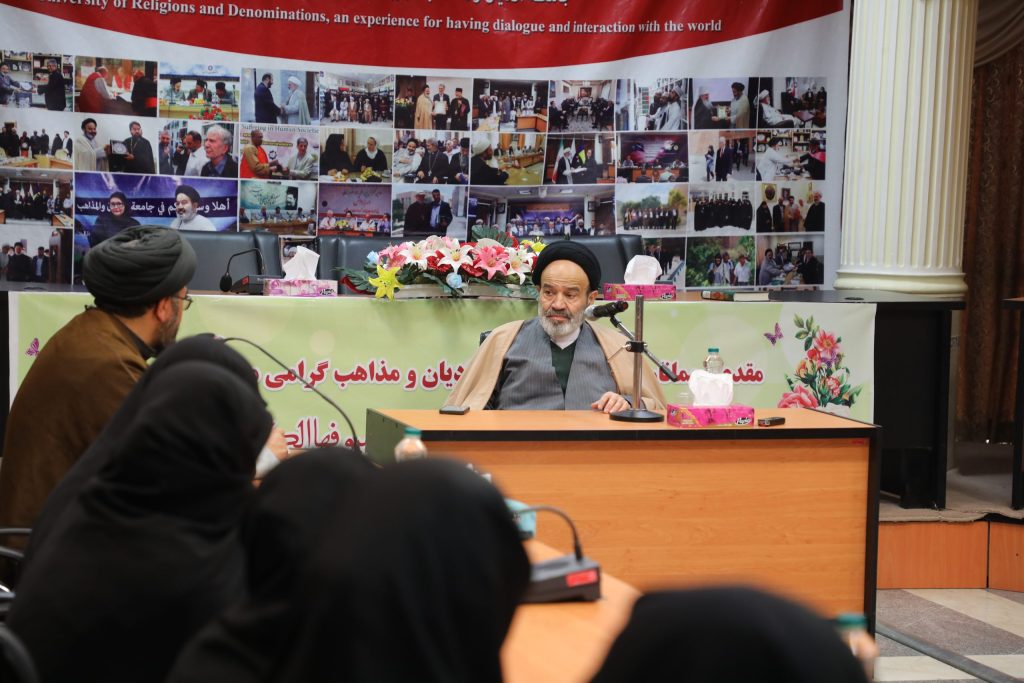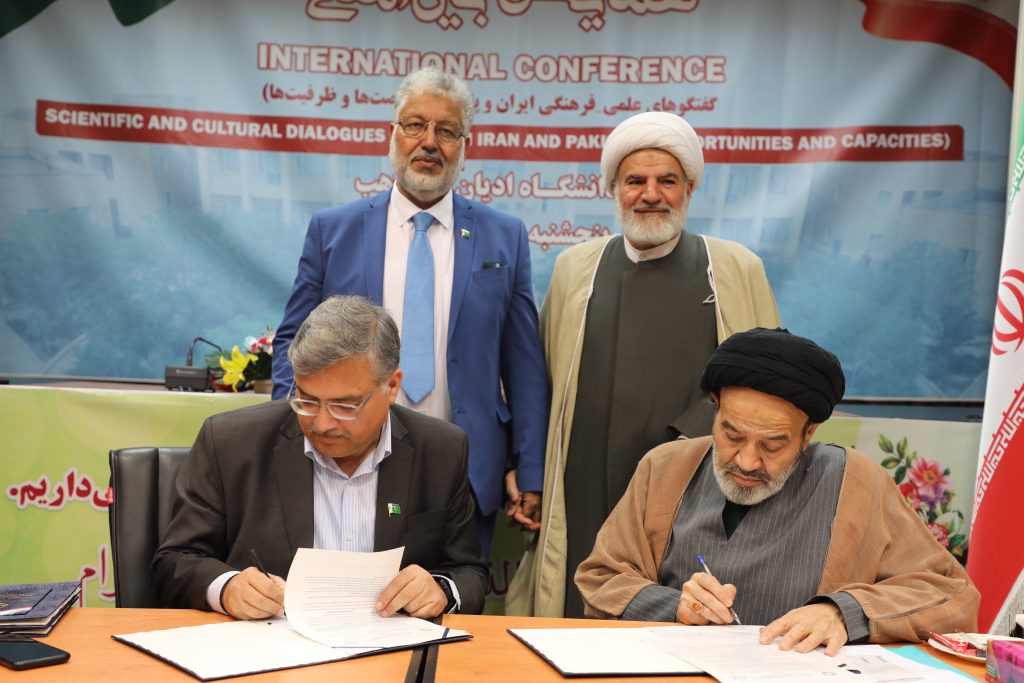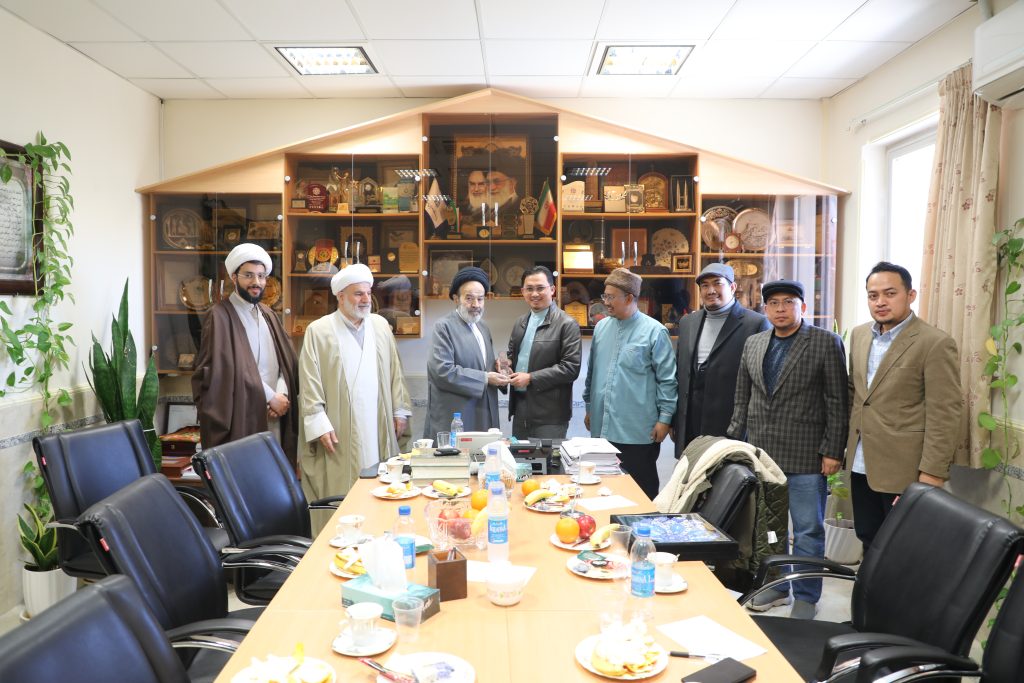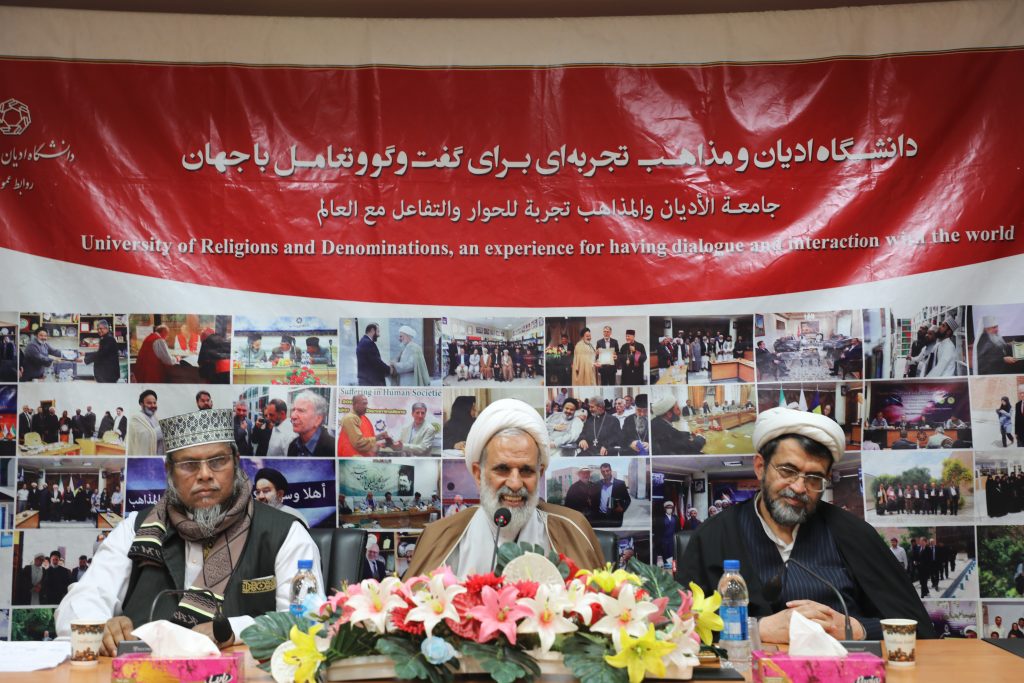The University of Religions and Denominations has created a great opportunity for religions dialogue

The ambassador of Germany in Tehran met with Hujat al-Islam Sayed Hasan Navab at the University of Religions and Denominations.
According to the Public Relations Office of the university, Hans-Udo Muzel, the German ambassador to the Islamic Republic of Iran, met with Hujat al-Islam Navab at URD.
Welcoming the German delegation, the President of the university said: there is an excellent, close relationship between the URD and the German universities. We accomplished several joint projects with German universities before Covid-19. I have delivered many lectures at German universities and have met with several important religious figures of that country including the honorary Pope of Germany (Pope Benedict XVI). Our relation with Germany is not limited to academic relations as we are also in close contact with religious and Christian figures of this country.
Hujat al-Islam Navab continued: the Germans have learnt a lot from their past. After World War II, they decided to change their previous international relations and start new cultural relations with other countries. These relations have been active since then and are considered as main parts of German foreign policies.
“Moreover, Germany is a European country without a colonial history. We do not regard Hitler’s faults as the faults of people of Germany. Similarly, to us, Saddam’s faults are not the faults of Iraqi people, the President of the URD added. Today, Germany plays an important role through this approach. Your country has a significant position in the European Union, the United Nations, and in the World Dialogue. We are here to play together an important role in solving some of the world’s problems through dialogue.
The URD president also stated: I see Germany as a multi-church country, since there are three types of churches in this country: Catholic Church, Protestant Church, and Orthodox Church. URD has good relations with the Orthodox and Catholic Churches. Our relations with Paderborn University are both academic and religious, since some of the German professors, with whom we are in academic contacts, also do religious activities in connection with the churches.
Hujat al-Islam Navab mentioned: the URD moves forward on the basis of interfaith dialogue; Quran has referred to this religions dialogue, when addressing the Christians 1400 years ago. The Quran 3:64 says: “O People of the Book, come to the words common between us and you”. This has been the method also adopted by the Muslim scholars, such as Al-Biruni who wrote the book “Critical Study of What India Says” 900 years ago. In this book, he has studied and analyzed Hinduism, while it is not a divine religion.
Referring to the extensive relationships between URD and international academic communities, Ambassador Muzel, said: among the most important issues that Germany emphasizesis the extension of cultural relations and the interfaith dialogue. The ambassador of Germany continued: “we are committed to supporting and facilitating such relations. The URD has created a great opportunity for the interfaith and intercultural dialogue. We will do our best to help academic and cultural relations between the URD and the German universities continue,”
He added: the history of Iran shows that the interfaith dialogue has always been an important issue for this country. Iran is a special country in the region. The existence of several religions in a country with all followers living peacefully together is of great importance.
The German ambassador emphasized that these relations must continue as before among the religious communities and added: in fact the religious people form the main body of a religious society. If they start the interfaith dialogue, they can have a greater impact on this dialogue and it will finally be realized globally.
Muzel stated: in Europe, the interfaith dialogue is a key issue. The impact of dialogue on our present and future is critical. Although it is important to learn from the past, I believe that the past is already passed and one should move forth by looking at the present and the future. Justice or equality, peaceful life, and women’s rights are central subjects in the interfaith dialogue. There are many criticisms on these subjects which need to be discussed. We believe that these are issues facing the present and future of the world and we must be able to address them.
He continued: as I mentioned earlier, the religious diversity in Iran is obvious. Neighboring countries lack such diversity. Many people in Europe and even other places are unaware of Iran’s religious diversity. Religious diversity can be a key topic in the international interfaith dialogue.
In this meeting, Hujat al-Islam Dr. Muhamad Mahdi Taskhiri, the Deputy of Communications and International Affairs of the university, referred to URD’s various international academic collaborations and said: functions of the URD are not limited to theorizing religious topics; interfaith dialogue is also one of the most important functions. We have had many dialogues with the representatives of Islamic sects and other religions. Also, we have held meetings with religious scholars of various countries such as Germany, France, Canada, the US, Italy, Austria, etc.
A main practical means for the realization of interfaith dialogue is to hold joint meetings and workshops with reputable universities from around the globe with the participation of professors and students. We are ready to organize these meetings to achieve the interfaith dialogue.




